‘Make history’: Anthony Albanese’s referendum rally cry after Bill passes parliament
Australians are set to be one step closer to heading to the polls later this year to have their say on the Voice to parliament.
Anthony Albanese says Australians will have a chance to make history when they head to the polls in the next six months to have their say on the Voice to parliament.
The Prime Minister, who has yet to announce the date of the referendum, told reporters he had faith Australians would vote “yes” despite recent polls suggesting support was waning.
“I say to my fellow Australians, parliaments pass laws, but it is people that make history. This is your time, your chance, your opportunity to be a part of making history,” he said in Canberra.
“It will be a moment of national unity, a chance to make our nation even greater. A gracious chapter in the great story of Australia. This change isn’t about detracting from the 122 years of our democracy.”
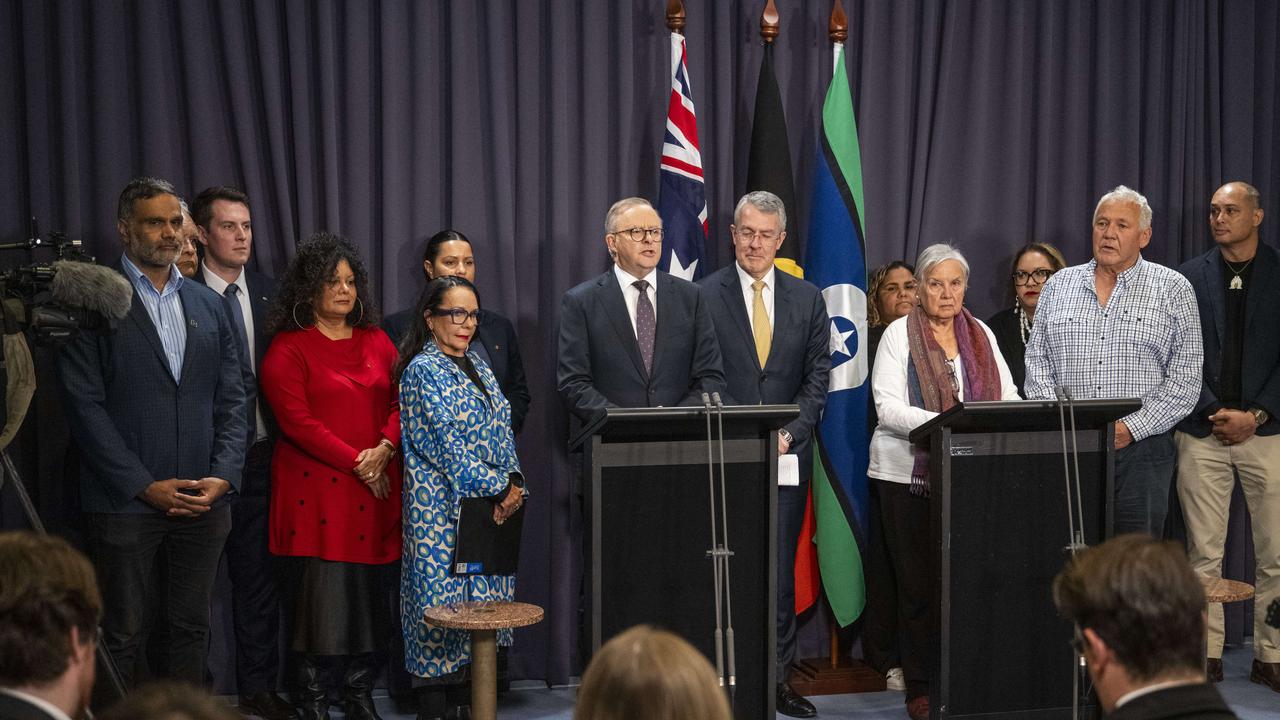
Mr Albanese stood alongside Indigenous Affairs Minister Linda Burney, Uluru Dialogues chairs Pat Anderson and Megan Davis and other advocates to celebrate the Senate’s passage of the Bill, 52 votes to 19.
After a heated debate in the Senate, in which One Nation leader Pauline Hanson made inflammatory comments about the Stolen Generation, the Prime Minister called for all sides of the debate to remain respectful.
Ms Anderson said a “level of maturity” was required form all involved. She told reporters the Voice was not “a big ask” from First Nations people.
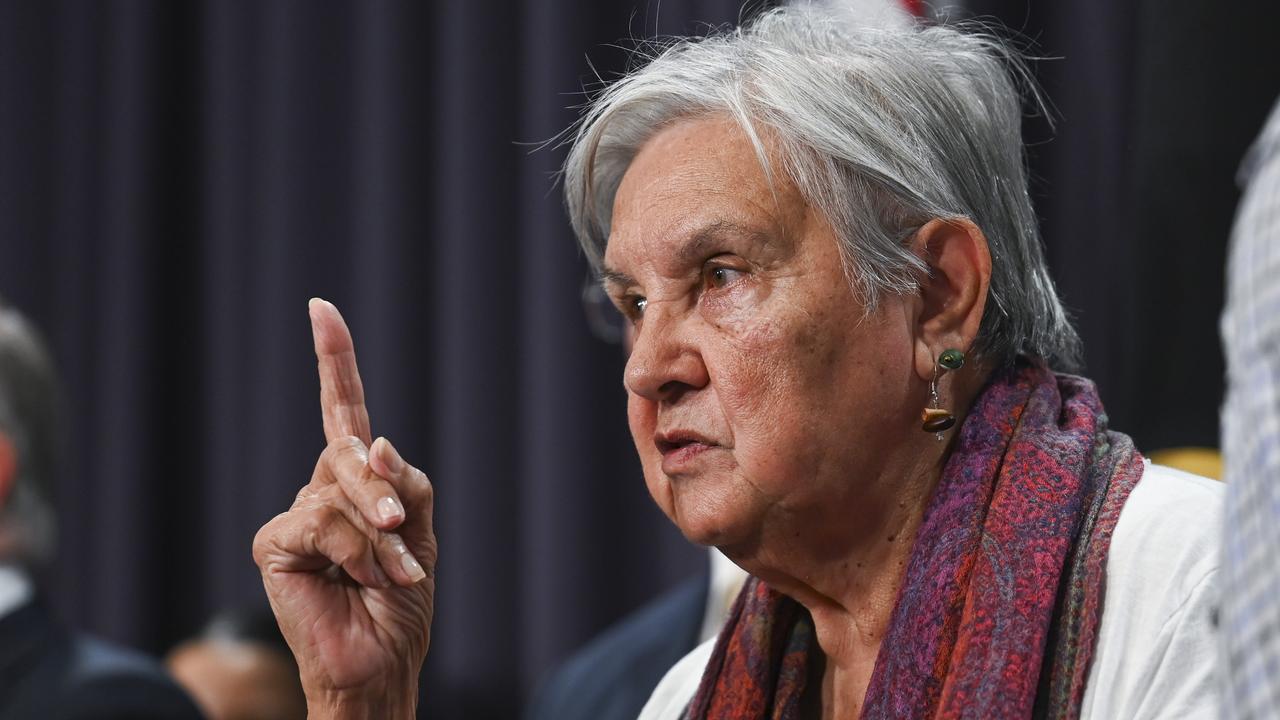
“Most of us here, including the minister (Burney), have spent our lives in the trenches as our parents before us … There’s like 65,000 years standing here,” she said.
“When you vote yes, we have mandate of the Australian people and then we can talk as equals. Equals with the parliament and the executive of the day.”
The Uluru Dialogues co-chair emphasised generations of First Nations people had worked “inside and outside” for their advancement and asked people to cast aside the “falsehood that black fellas get everything because we do not”.
“There has been advances and achievements but through our advocacy and we are coming to you again as we have done all of the generations before us,” Ms Anderson said.
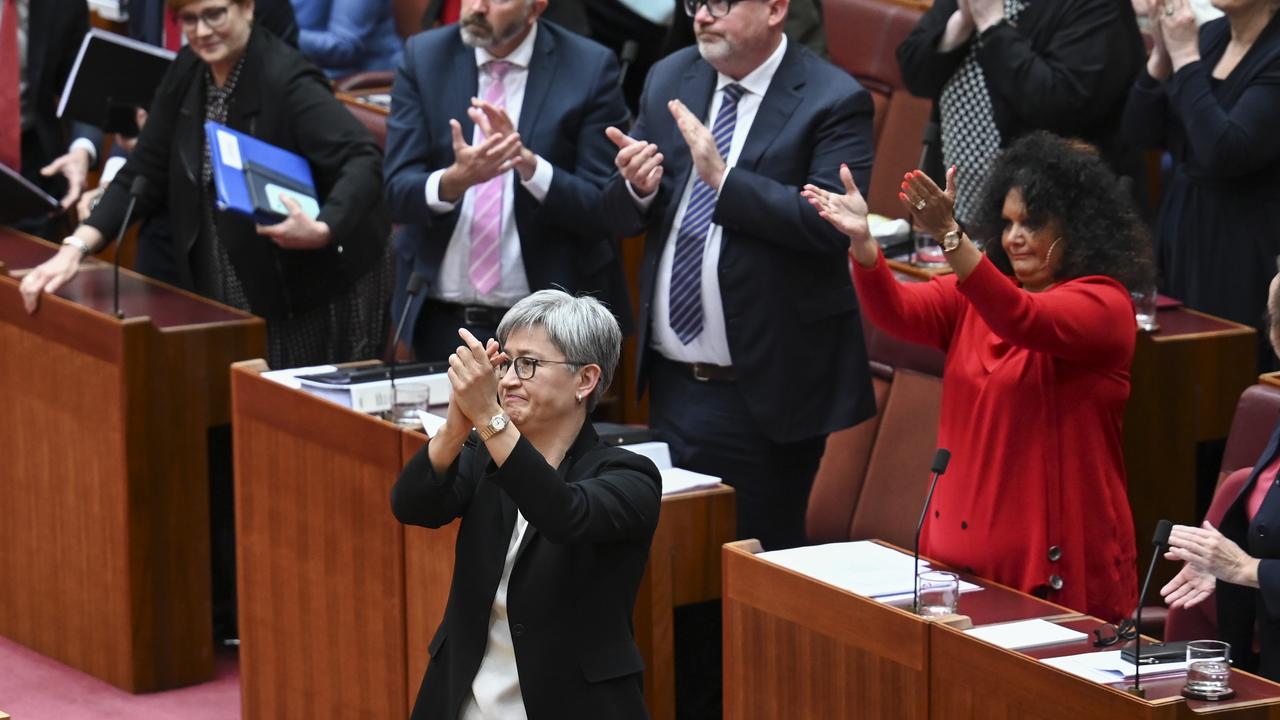
The Bill’s passage through parliament was bookended by controversial speeches. Last month, Opposition Leader Peter Dutton claimed the Voice would “re-racialise” Australia.
On Monday, Indigenous senator, and longtime critic of the Voice, Lidia Thorpe said the referendum was about appeasing “white guilt” and declared she would vote “no”.
“‘Gammin’, as we know, is fake; pretend; a joke. And that’s what I think a powerless Voice is,” the Victorian senator said, wearing a T-shirt adorned with the slogan.
“I’ll be voting no to this disastrous idea of giving us no power,” she said.
She gestured to members of the referendum working group who were present in the public gallery and took aim at the process. The senator reiterated her call for a treaty instead of the Voice.
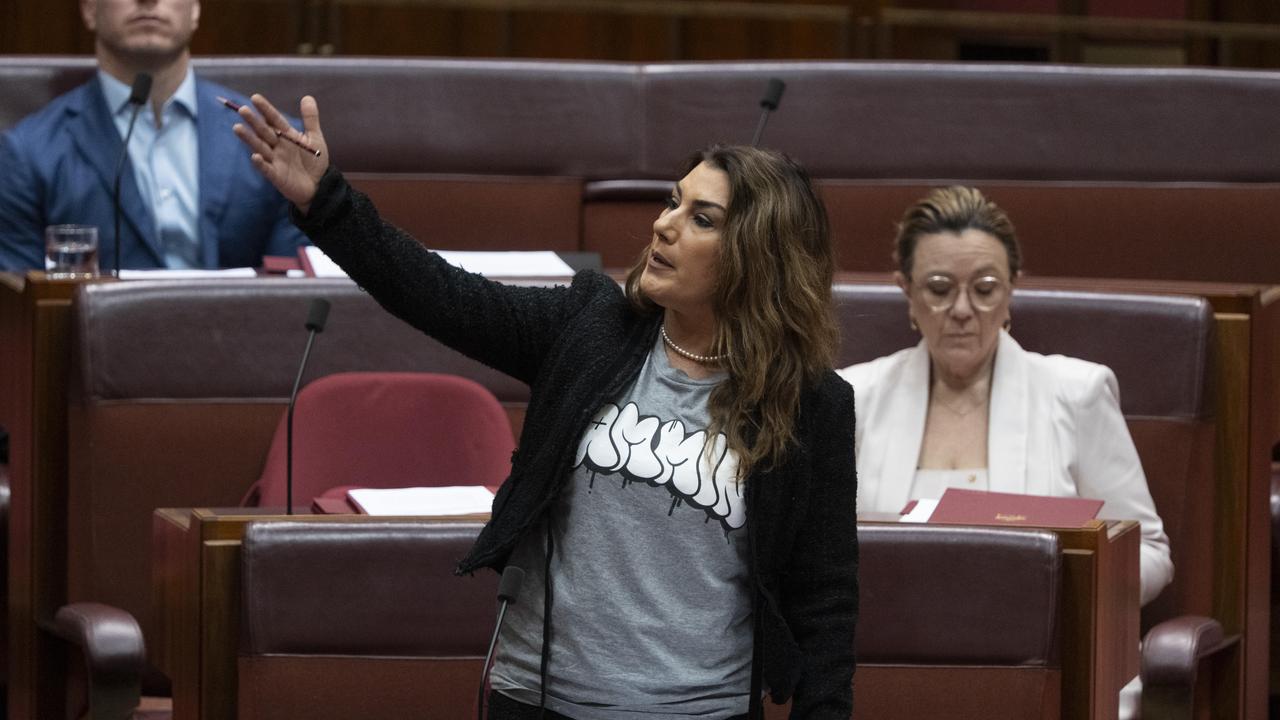
Senator Thorpe also repeatedly interjected as Indigenous Greens senator Dorinda Cox outlined her reasons for voting yes.
“This change to the Constitution does not impact our sovereignty”, the WA senator said.
Country Liberal senator and leading no campaigner Jacinta Nampijinpa Price said the proposal would lead to “an extra layer of bureaucracy and red tape”.
It’s expected the Prime Minister will officially announce the date Australians will head to the polls within the coming weeks as the “yes” and “no” camps begin to ramp up their campaigns.
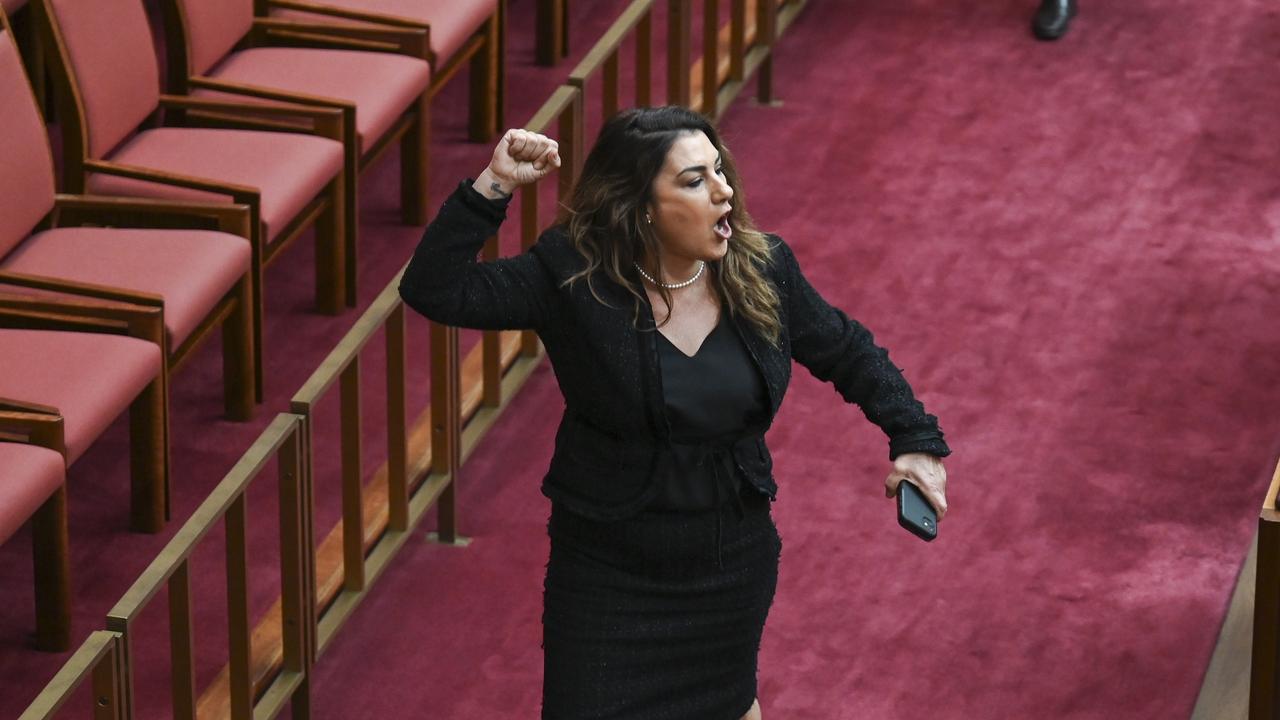
The legislation’s passage now triggers a six-month timeframe in which the referendum must be held. The government has flagged a vote is expected to be held between October and December.
While the Liberals and Nationals have announced their opposition to the Voice, a majority of those in the Senate voted to pass the Bill despite being personally against the plan.
Instead, parliamentarians opposed to the Voice were designated to vote against it in order to allow them contribute to a pamphlet that will be sent to every Australian.
About 30 politicians will have a stay on the wording of the case for the “no” campaign included in the document.
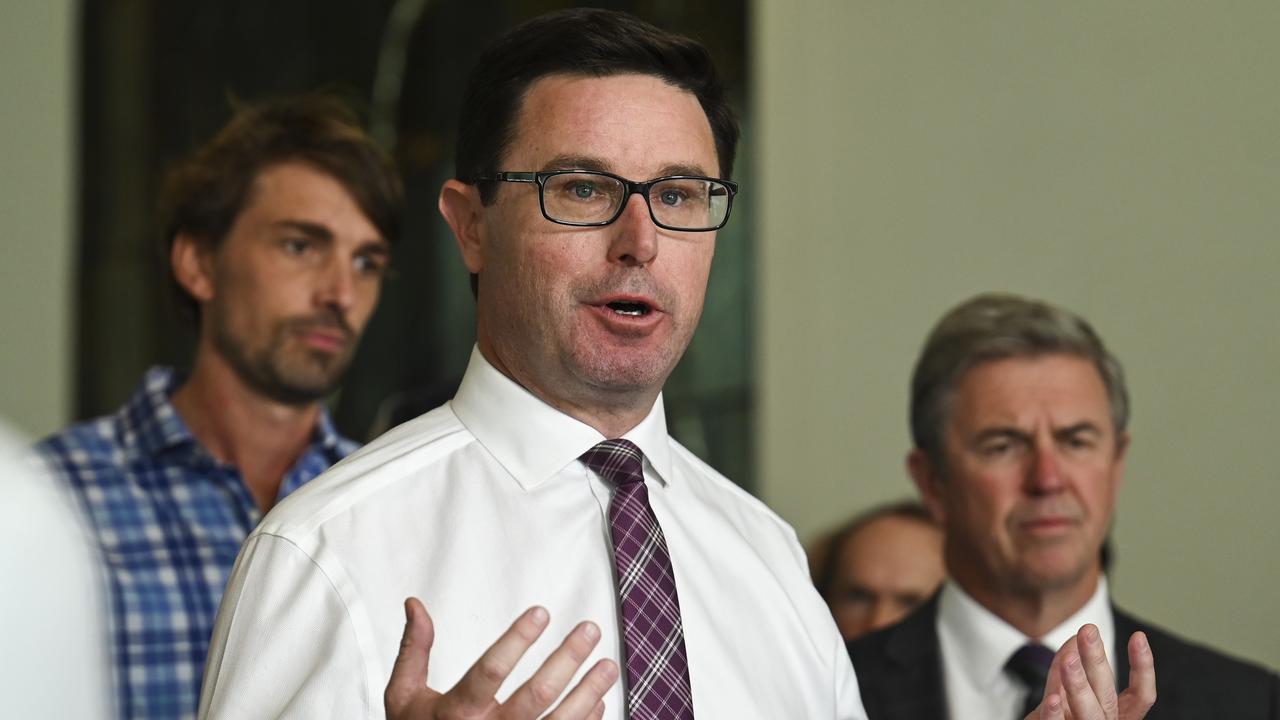
Nationals leader David Littleproud said he would not encourage inflammatory language being included in the leaflet, such as Peter Dutton’s claim the Voice would “re-racialise” Australia.
“I won't be the final arbiter, there’ll be many within that room that’ll put those words together, but I intend to lead as best I can in influencing a respectful pamphlet in the way that I think our nation deserves.”



